Thomas L. Pirnot Lecture in Mathematics
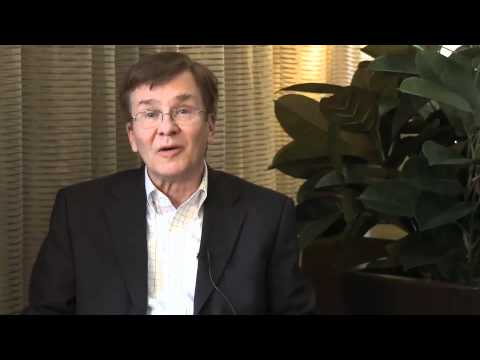
Pirnot Lecture
The Pirnot Lecture Series is named in honor of Dr. Tom Pirnot. Dr. Pirnot served as a Kutztown Mathematics professor from 1970-2008.

Pirnot Lecture
The 2025 Pirnot Lecture was given by Dr. David Edwards of University of Delaware.
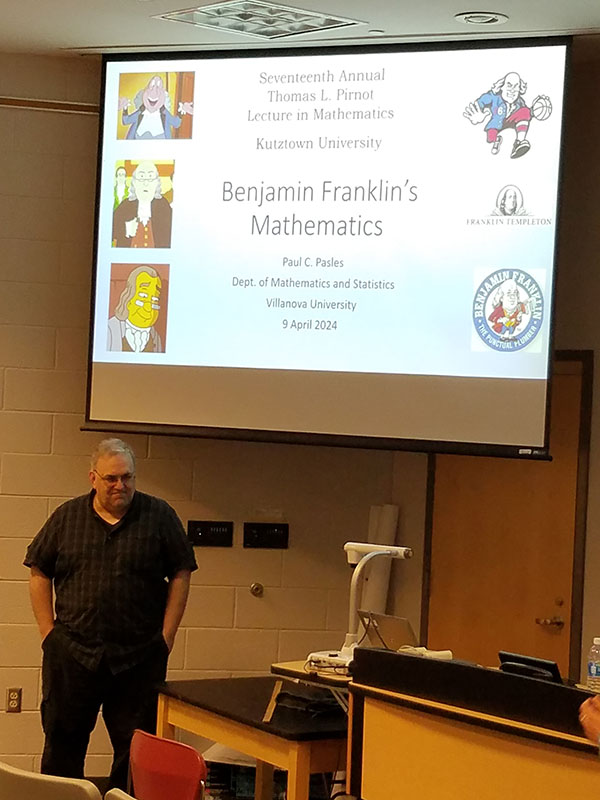
Pirnot Lecture
The 2024 Pirnot Lecture was given by Dr. Paul Pasles of Villanova University.
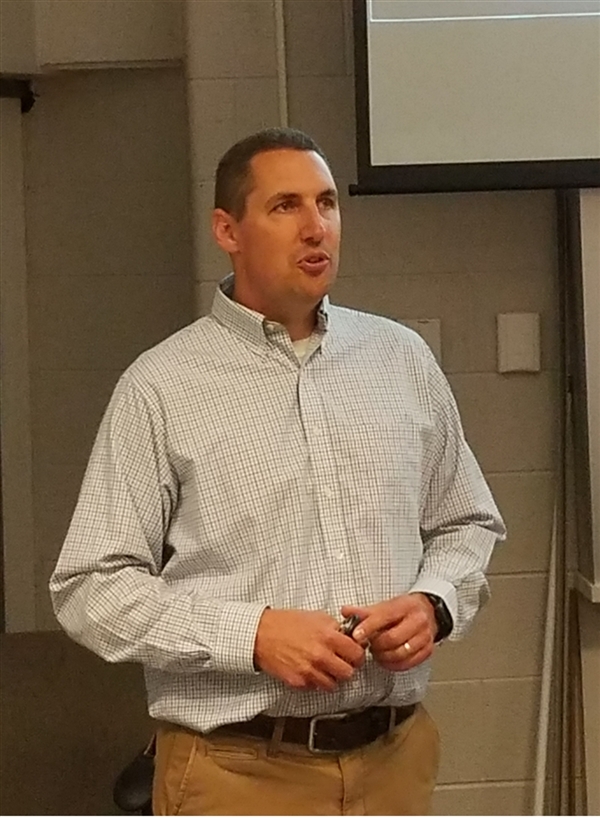
Pirnot Lecture
The 2023 Pirnot Lecture was given by Dr. Eric Landquist of Voatz, Inc. and Aldebaran Analytics.
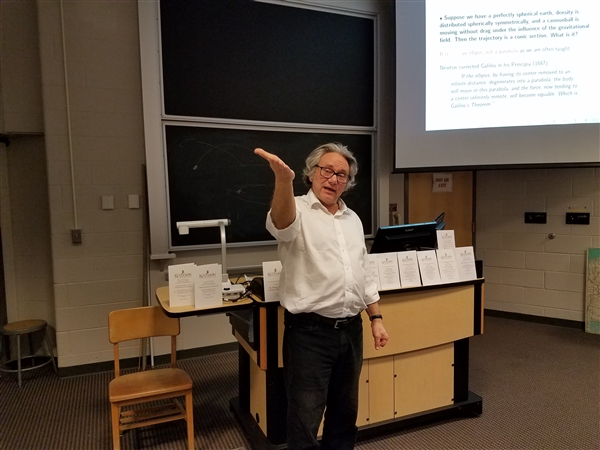
Pirnot Lecture
The 2022 Pirnot Lecture was given by Dr. Felix Lazebnik of University of Delaware.
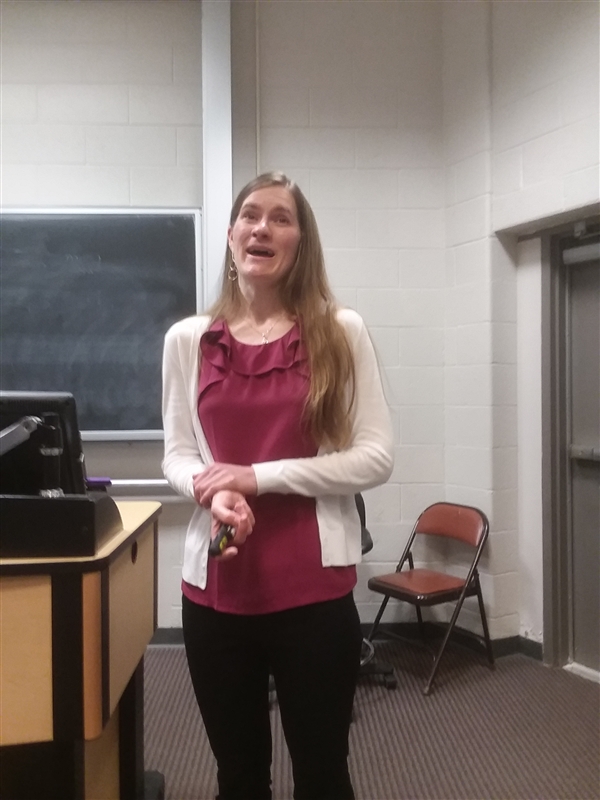
Pirnot Lecture
The 2019 Pirnot Lecture was given by Dr. Karen McCready of King's College.
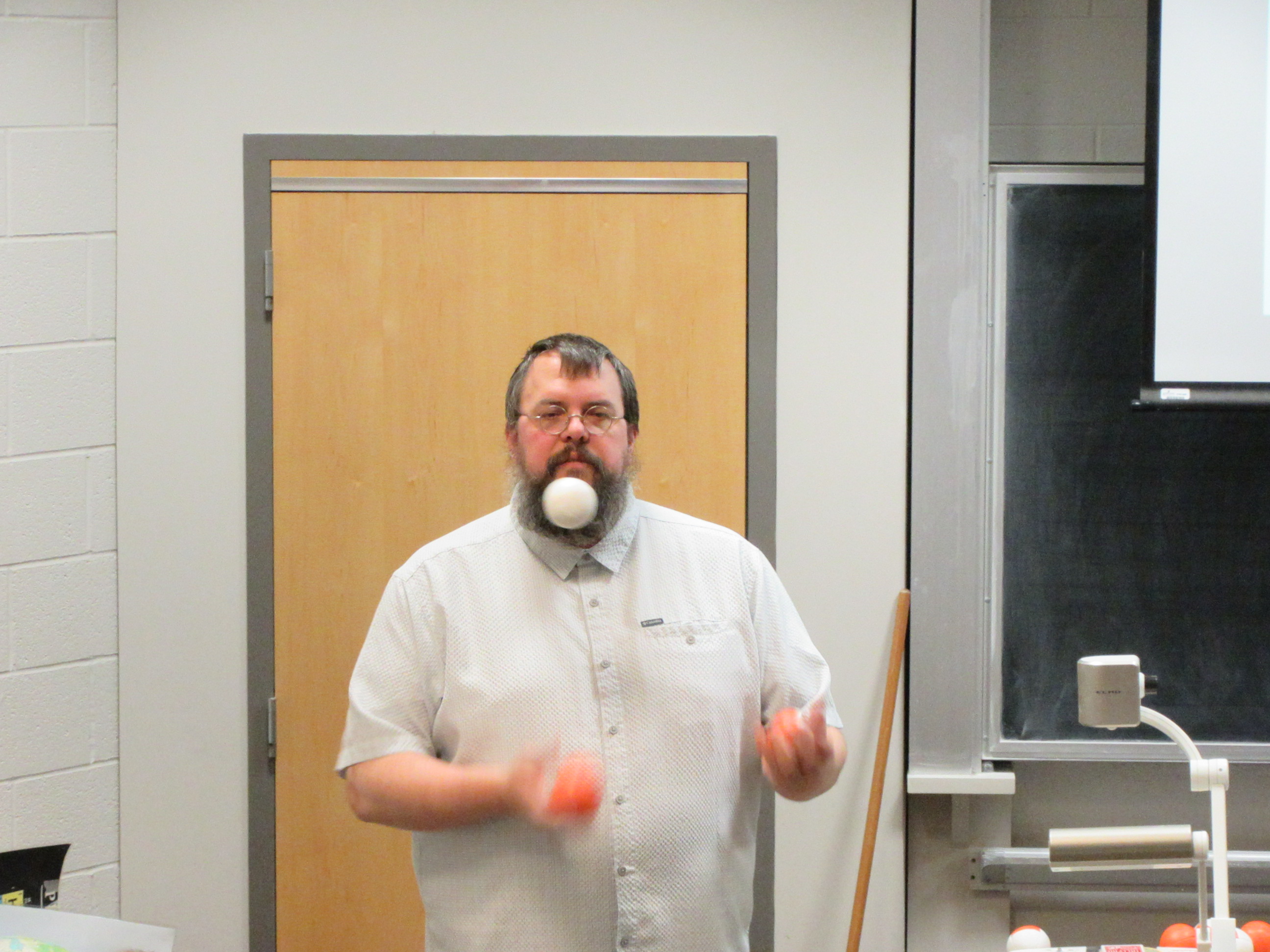
Pirnot Lecture
The 2018 Pirnot Lecture was given by Dr. Steve Butler of Iowa State University.
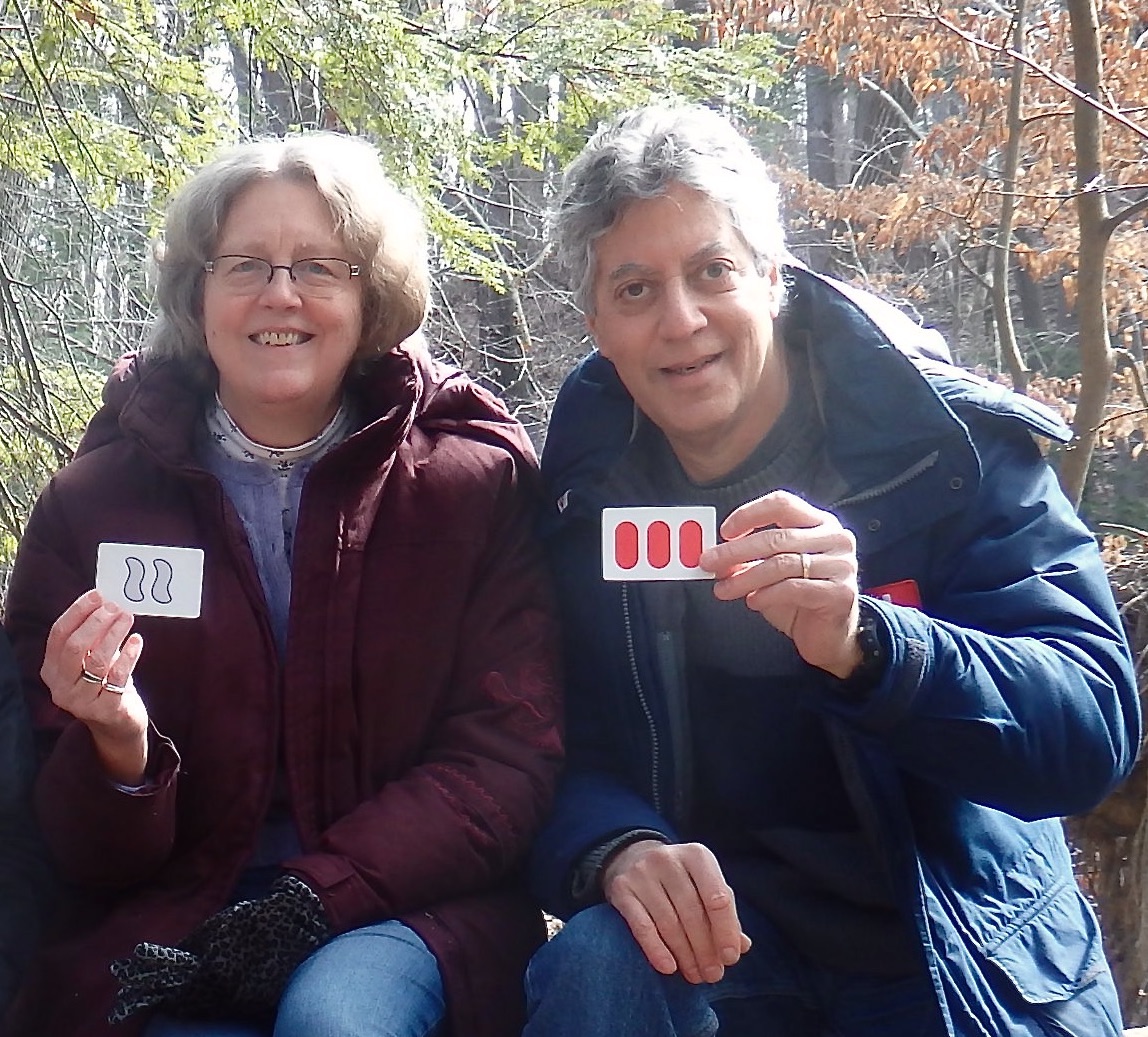
Pirnot Lecture
The 2016 Pirnot Lecture was given by Dr. Liz McMahon and Dr. Gary Gordon of Lafayette College.

Pirnot Lecture
The 2015 Pirnot Lecture was given by Dr. Neil Sloane, founder of the On-Line Encyclopedia of Integer Sequences
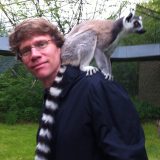
Pirnot Lecture
The 2014 Pirnot Lecture was given by Dr. Derek Smith of Lafayette College.










2025 - 18th Annual Thomas L. Pirnot Lecture in Mathematics
Thursday, April 3, 2025 at 4:00 p.m. in Boehm Hall 260
"Hedging: From Football to Finance"
Dr. David Edwards, University of Delaware
Abstract:
How does FanDuel set odds on who will win a football game? How do you value an option to buy a stock sometime in the future? In both cases, the decisions have to be made before the final outcome is known. Can we create a hedging strategy that reduces the variability of utility upon the particular outcome that occurs? Yes, given some knowledge about the probabilities of those outcomes. This is how a gambling house sets betting odds, and how option prices are set by financial markets. We will explore these ideas in this talk in both the discrete and continuous contexts, utilizing ideas designed to be accessible to undergraduates at all levels.
2024 - 17th Annual Thomas L. Pirnot Lecture in Mathematics
Tuesday, April 9, 2024 at 4:00 p.m. in Boehm Hall 262
"Benjamin Franklin's Mathematics"
Dr. Paul Pasles, Villanova University
Abstract:
Centuries after the death of Benjamin Franklin, his mathematical discoveries continue to be
cited in academic journals and books. Franklin was willing to apply basic mathematics
to situations where only qualitative arguments had been admitted previously.
How did a self-educated amateur scientist conceive of original concepts
in such wide-ranging areas as demography, decision-making, and most famously,
the art of magic squares?
This talk will examine Franklin’s self-education and early influences,
his contributions to quantitative thinking, and his influence on others.
2023 - 16th Annual Thomas L. Pirnot Lecture in Mathematics
Tuesday, April 18, 2023 at 4:00 p.m. in Boehm Hall 260
"Dr. Landquist's Ride: Math & Cryptography in the Election and Startup Industry"
Dr. Eric Landquist, Voatz, Inc. (Senior Scientist) and Aldebaran Analytics (CEO, Co-Founder)
Abstract:
This will be a two-part talk structured like a mini "careers in math" conference. The first part will cover life as a mathematician in industry and how one might prepare for such a career. The second part will cover some of the problems that Voatz and I have worked on.
When considering a career as a mathematician in industry, many questions naturally arise. What is a typical day like? What would I have done differently in college and graduate school to prepare for this career path? What are some things to consider when considering job offers or career options? Why did I leave academia for industry and why do I hope to come back to teach a course every year or two? Why did I start my own company? What are some things involved in entrepreneurship?
The problems I've encountered with both Voatz and Aldebaran are varied. What is a blockchain and why is this technology important to understand? How is a blockchain used in the election industry? How does one secure ballots? How is mathematical modelling used to prepare for an election? My own start-up, Aldebaran Analytics, is involved in digital asset management. Investors have many questions. For example, how might you predict the exchange rate of bitcoin to the dollar? Could you use machine learning? What is machine learning exactly?
There are likely more questions posed here than we have time for, but there will be time for questions from the attendees.
2022 - 15th Annual Thomas L. Pirnot Lecture in Mathematics
Tuesday, April 12, 2022 at 4:00 p.m. in Boehm Hall 260
"Mathematical Surprises"
Dr. Felix Lazebnik, Professor of Mathematics, University of Delaware
Abstract:
Besides being beautiful, useful, and hard, Mathematics can also be very surprising. In this talk, I will try to analyze the latter aspect, based on my own experience, as it has been an important motivation for my work.
I hope you will be surprised with something you hear.
2020-2021 -
13th and 14th Annual Thomas L. Pirnot Lecture in Mathematics
The 2020 and 2021 Pirnot Lectures were cancelled due to COVID-19.
2019 - 12th Annual Thomas L. Pirnot Lecture in Mathematics
Wednesday, April 17, 2019 at 5:00 p.m. in Boehm Hall 262
"When You Can't Believe Your Eyes: A Look at The Mathematics of M. C. Escher"
Dr. Karen McCready, Assistant Professor of Mathematics, King's College of Pennsylvania
Abstract:
Maurits Cornelis Escher was a twentieth century Dutch artist. Referred to as a "thinking artist," he is known for his mathematically themed work, although he was not himself a mathematician.
We will look at some of the ideas that appear throughout his work that intrigued and inspired mathematicians. This includes explorations of infinity, symmetry, perspective, and the portrayal of impossible figures.
We will also consider some of his pieces that depict tessellations and non-Euclidean geometries.
2018 - 11th Annual Thomas L. Pirnot Lecture in Mathematics
Tuesday, April 17, 2018 at 4:00 p.m. in Boehm Hall 262
"An Introduction to the Mathematics of Juggling"
Dr. Steve Butler, Department of Mathematics, Iowa State University
Abstract:
Juggling and mathematics have both been done for thousands of years, but the mathematics of juggling is a relatively new field that dates back a few decades and looks at using the tools of mathematics to analyze, connect, and count various juggling patterns.
We will introduce some of the very basic results related to the mathematics of juggling with a particular emphasis at looking at the various methods used to describe juggling patterns. A few "practical" applications will also be demonstrated.
2017 - 10th Annual Thomas L. Pirnot Lecture in Mathematics
The 2017 Pirnot Lecture was held in conjunction with the EPaDel (Eastern Pennsylvania and Delaware Section of the Mathematical Association of America) section meeting hosted by Kutztown University on April 1.
2016 - 9th Annual Thomas L. Pirnot Lecture in Mathematics
Thursday, April 14, 2016 at 4:00 p.m. in Boehm Hall 260
"The Joy of SET®: The Mathematics In a Card Game"
Dr. Elizabeth McMahon and Dr. Gary Gordon, Lafayette College
Abstract:
The card game SET® is played with a special deck of 81 cards. There is quite a lot of mathematics that can be explored using the game. We’ll look at questions in combinatorics, probability, linear algebra, and especially geometry. The deck is an excellent model for a 4-dimensional finite affine geometry. If you’d like some practice before the talk, go to www.setgame.com for the rules and a Daily Puzzle.
2015 - 8th Annual Thomas L. Pirnot Lecture in Mathematics
Friday, April 10, 2015 at 6:15 p.m. in Boehm Hall 145 (part of the PASSHE Mathematics Association conference hosted by Kutztown University)
"My Favorite Integer Sequences, or, Confessions of a Sequence Addict"
Neil J.A. Sloane, Ph.D., Founder of the On-Line Encyclopedia of Integer Sequences (OEIS) and President of the OEIS Foundation
Abstract:
The On-Line Encyclopedia of Integer Sequences (or OEIS, oeis.org) is a free web site that contains information about a quarter of a million sequences, and is often called one of the most useful mathematical sites on the Web. I will discuss some of my favorites, including the van Eck, Zizka, Fredkin, Quet, Kelly, Yellowstone, etc. sequences. There will be music, movies, and a number of unsolved problems. Warning: some of these may prevent you sleeping at night.
2014 - 7th Annual Thomas L. Pirnot Lecture in Mathematics
Wednesday, March 12, 2014 at 5:00 p.m. in Boehm Hall 260
"Pondering Packing Puzzles: Research in Recreational Mathematics"
Derek Smith, Ph.D., Associate Professor of Mathematics, Lafayette College
Abstract:
Here's a puzzle for you: Is it possible to assemble six 1x2x2 blocks and three 1x1x1 blocks into a 3x3x3 cube? If so, in how many ways can this be done?
Don't look up the solution! Try to figure this out on paper or with a model first. But let me tell you that this is the Slothouber-Graatsma-Conway Puzzle, often called the smallest non-trivial 3-dimensional block-packing puzzle.
I will describe an infinite family of packing puzzles that includes the Slothouber-Graatsma-Conway Puzzle, and I will prove a nice result about them. I will also introduce you to Burr Tools, a cool computer program that helps with investigations of packing and other types of puzzles.
2013 - 6th Annual Thomas L. Pirnot Lecture in Mathematics
Wednesday, March 26, 2013 at 3:30 p.m. in McFarland Student Union Building 250
"Cantor and the Paradise He Gave Us"
Robert Vallin, Ph.D., Professor of Mathematics, Slippery Rock University of Pennsylvania
2012 - 5th Annual Thomas L. Pirnot Lecture in Mathematics
Tuesday, March 27, 2012 at 5:00 p.m. in Boehm Hall 261
"Adventures with The Moore Method as a Student and Teacher," a MILK Lecture
Dr. E. Lee May, Distinguished Professor of Mathematics, Salisbury University
2011 - 4th Annual Thomas L. Pirnot Lecture in Mathematics
Thursday, March 3, 2011 at 11:00 a.m. in Lytle Hall 214
"Solving Differential Equations Numerically Using Steepest Descent"
Dr. W. Ted Mahavier, Professor of Mathematics, Lamar University of Texas
Abstract:
We demonstrate a method for solving differential equations numerically by
recasting them as integral equations and then applying steepest descent to obtain
a solution. For example, to solve y′ = y without a boundary condition, one might
let φ(y) = 0∫1 (y′(t) − y(t))2 dt and seek out a function y so that φ(y) = 0.
For many years it has been known that applying steepest descent based on
the Euclidean norm is inefficient (disastrous) but that changing the norm on our
space can result in obtaining solutions very quickly. We will give an outline of
this process with lots of arm waving and simplifications while addressing the recent
research by a graduate student that shows that if the perfect norm is chosen, one
can expect convergence to a solution after one numerical iteration!
2010 - 3rd Annual Thomas L. Pirnot Lecture in Mathematics
Tuesday, April 13, 2010 at 3:30 p.m. in Lytle Hall 228
"A Tribute to Euler"
Dr. William Dunham, the Truman Koehler Professor of Mathematics, Muhlenberg College
Abstract:
Among history’s greatest mathematicians is Leonhard Euler (1707-1783), the Swiss genius who produced an astonishing 25,000 pages of pure and applied mathematics of the very highest quality.
In this talk, we sketch Euler’s life and describe a few of his contributions to number theory, algebra, and other branches of mathematics. Then we examine a particular Eulerian theorem: his simple but beautiful proof that there are as many ways to decompose a whole number into the sum of distinct summands as there are ways to decompose it into the sum of (not necessarily distinct) odd summands.
Condorcet, in his Eulogy to Euler, wrote that “All mathematicians now alive are his disciples.” It should be clear to those who attend the Pirnot Lecture that these words are as true today as when they were first set down over two centuries ago.
2009 - 2nd Annual Thomas L. Pirnot Lecture in Mathematics
Tuesday, April 14, 2009 at 3:30 p.m. in Lytle Hall 228
"Ramsey's Theorem: The Extremal Limits of Party Planning"
Dr. Michael Picollelli, Assistant Professor of Mathematics, Department of Mathematics, LaFayette College
Abstract:
Out of any six people, there are three mutual acquaintances or three mutual strangers.” This simple-looking statement may appear as little more than a recreational problem for mathematics contests (where it did once appear).
In fact, it is the very tip of a mathematical iceberg known as Ramsey Theory, a field which has played a pivotal role in the development of
modern combinatorics.
In this talk, we will explore the fundamental result in this area,
Ramsey’s Theorem, which guarantees, among other things, that a large
enough party will be very good or very bad.
2008 - 1st Annual Thomas L. Pirnot Lecture in Mathematics
Tuesday, April 15, 2008 at 3:30 p.m. in Boehm Hall Room 260
"A Weierstrass Quartet: Four Ideas from the Father of Modern Analysis"
Dr. Jerry King, Professor Emeritus, Lehigh University
Abstract:
The talk will examine four Weierstrass ideas and discuss briefly where
in mathematics each idea might lead.
They are:
(1) the construction of an everywhere continuous, nowhere differentiable function which takes many of us away from real analysis and leads some of us to Brownian motion, fractals, chaos, or wavelets.
(2) The Approximation Theorem which is the foundation of modern approximation theory and connects this subject with both probability theory and the theory of summability.
(3) ”There is nothing but power series” - a statement and a theory which reduces complex analysis to a kind of high-toned arithmetic.
(4) ”A mathematician who is not also something of a poet will never be a complete mathematician” - a philosophy that yields both a model for mathematics and a way of teaching.






